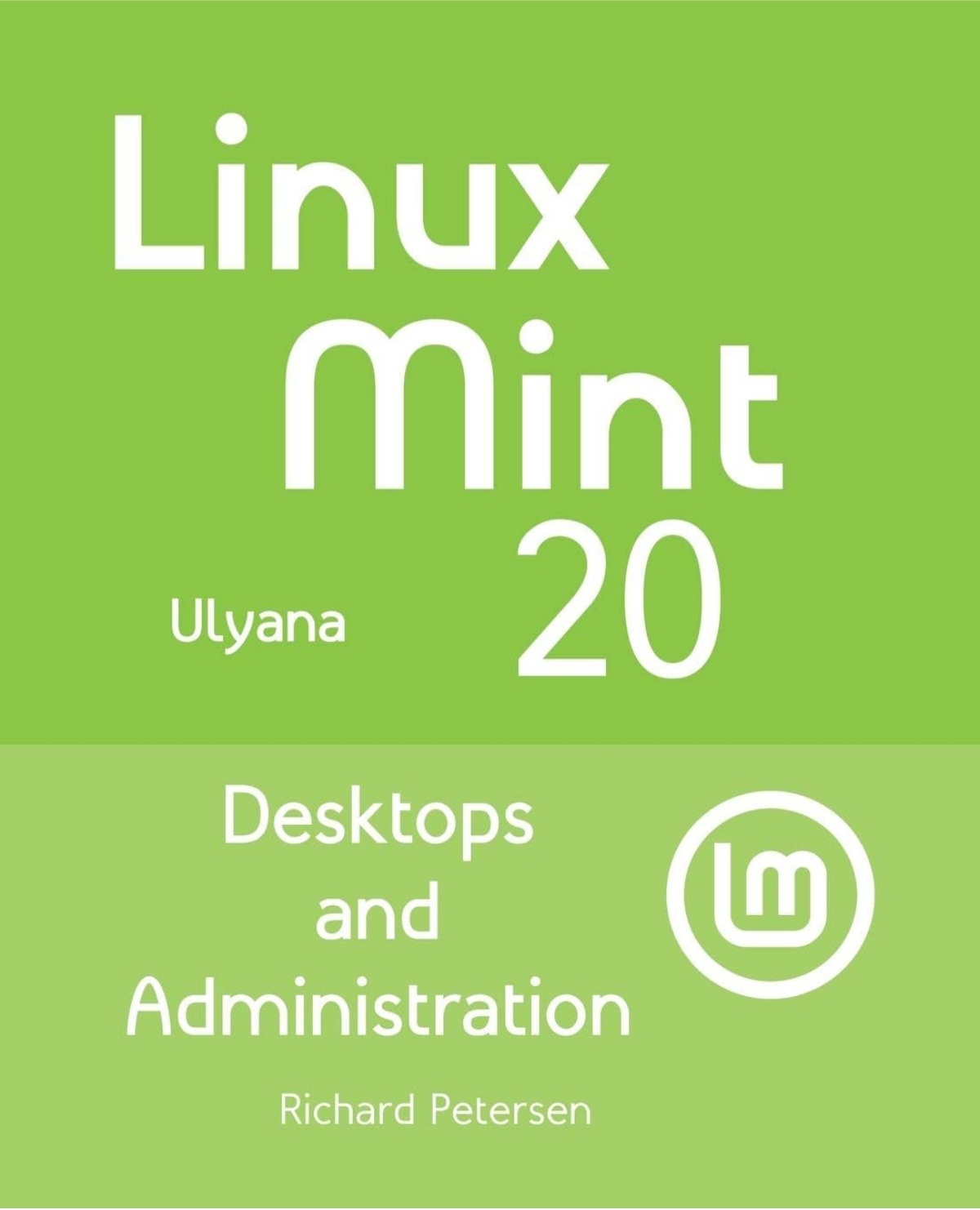Slackware was my first as well. You really learned Linux using it. I probably rebuilt that drive a dozen times because I’d bork something and it was easier to reinstall than it was to figure out how I broke it in some new novel way.
Also not having a phone to look stuff up and having to rely on looking stuff up in books was hell now that I think of it.
Having the phone these days for reference is huge. When I did my current arch install a few years back, I realized how clutch it was having that option because it definitely wasn’t a thing even back in the mid aughts. Sifting through even the console manual was tedious as opposed to just searching for a solution, it makes one grateful for the current state of things.
That was a reason back then to pay for a distribution box - it came with a very good printed manual. Which had beginner friendly sections like “now that you have a running system let’s configure and build a kernel matching your hardware”.
Yup, it was the good old time, on a 486
Same, Slackware, went over to Red Hate for a while then Debian - am using Ubuntu now. I’ll never forget (in 1998) setting up Slackware as a server on an old spare 486 the company I worked for had laying around. It had a SCSI hard drive. Oh the pain. USENET was the only good reference, and you’d sometimes have to post and wait a day for a response if you just couldn’t figure it out.
Got that server running and saved the company hundreds of dollars a month - they had been paying egregious fees to host brochureware. They thought I was Superman.
it was easier to reinstall than it was to figure out how I broke it in some new novel way.
I came to the same conclusion. But I couldn’t get it to reinstall. It kept wanting to use the old partition. (2001, maybe Ubuntu?)
So I knew how to solve that. If the linux installation is wiped, then it’ll surely allow me to reinstall fresh. So,
rm -rf /Begins deleting files…
“Wait, my Windows partition is under that, isn’t it.” Ctrl+C frantically, it won’t stop. Pull the plug.
I did get my files back. Just, you know, without file paths or file names. Do you know how many DLLs and worthless text files there are, by the way?
Also not having a phone to look stuff up and having to rely on looking stuff up in books was hell now that I think of it.
Oh man, not having a second device to look things up and fucking up your
NICmodem drivers. Impossible situation for a noob, but somehow I kept going.
I started with SuSE 5 and it came with a book. I think it started with something like: “Don’t panic! You can do this!”
It was rough at first, but once I got into it I was hooked.
I dug around in old boxes and found the book!

Can I get this kind of book but for Mint?

A quick search says yes. That said, I haven’t read the book and don’t use mint. I feel like mint doesn’t need is own book, there are plenty of books on linux as a whole that are probably better.
If you want the book pictured: Isbn-10 194985714x
YaST and the fucking AVM Fritz ISDN ISA Card…
A part of me is still crying when opening YaST killed my hand written configuration…
Curious if you’re still rocking suse today?
Nah I went over to camp Debian for a long time, switched when Debian Potato was released. Then when Debian kinda stalled I was lured into Ubuntu because they had the latest and greatest. I know it isn’t the cool choice these days, but I have stuck with Ubuntu ever since.
Recently tired Ubuntu on my work laptop and it was a surprisingly pleasant experience compared to all the negative things I’ve heard about Ubuntu. Especially the installer was next level simple.
Yeah I love Ubuntu, it’s really fine. But I think because it’s easy and for a lot of people their first Linux, it’s seen as like the baby version of Linux. So people bitch about it a lot, as if it’s somehow inferior to other distros. Like if you don’t compile everything from scratch you are somehow not worthy?
Hard “Real programmer” vibes. https://xkcd.com/378/
And yes, I use
picoas a text editor, it’s fine really.Mint is basically Ubuntu without the controversial bits.
Hello fellow started-with-suse-but-switched-to-Debian-potato 🤝
Wow! That’s really cool, Debian Potato was so hype back then. And every new release was amazing, I had Sarge running for so long. And I had a little home made router with Debian Sarge and an uptime of like 3 years. I had to replace the NIC on it, from a 10mbit coax only to a coax and UTP model because I was switching over to UTP. I didn’t want to shutdown the server, so I live swapped the ISA cards, and it actually worked!
Those were the days.
Spelling DOS as DoS is either a cunning joke or one heck of a Freudian slip.
thank you. I stopped immediately right there and my brain went into fast forward to think of why some madperson had spelled DOS as DoS.
AI? . . . It means something else?? . . . no, it’s gotta be AI. Or is it on purpose? just to fuck with us? . . . Why?!! Arrgh
Maybe a typo. I usually just hold down shift for shorter acronyms rather than use CapsLock. But sometimes my muscle memory screws up and I press down the shift separate per letter. Probably a habit from phone keyboard (sticky shift key).
Come to think of it, I’m pretty sure I’ve never actually used caps lock on PC to write in all caps…
I remapped my CapsLock key to Escape. The only time I ever hit CapsLock was a mistake, so this works out a lot better… and yes, I’m a Vim user so having that Escape close by saves my pinky.
Yes, there’s dozens of us!
Dozens!
Mb it was typed on a phone initially, and it autoincorrected dos to DoS
Redhat, back in 1999. Then Mandrake 2002. Then Suse 2003. Then Ubuntu 2006. Then Debian 2012-present.
But it’s funny I kept KDE since Mandrake. Same DE for over 20 years. For Redhat I was using this Win95 lookalike DE, I forgot what it was called.
Edit: I definitely did not order a couple dozen of Ubuntu’s free CD-ROMs back in the day and throw them at everyone I knew and didn’t know, including random kiosk people at the mall…
Fvwm95? I used that for a bit way back in the day…
That was it.
Slackware around 96. I downloaded it from a local BBS over a 28.8 modem. It took forever. I don’t recall how many floppies it took, but it was a good stack. I got it installed, then realized it was in Portuguese. I did not know Portuguese at the time. So I got a crash course in Linux and Portuguese at the same time learning how to reconfigure the language settings. It was a fun time.
I downloaded slackware from a BBS. It took forever. It booted from two floppies, a boot and a root disk. It did not even have X. I still loved it, because I recently got into programming, and all I had ever programmed on was DOS. In Linux, you could actually malloc() with any amount, even a full megabyte! It was marvellous! Later, I installed it on my HD on a separate partition. The installation process was really fascinating, so much choice, so many new programs! At least the first time.
make menu; make menu config
I did it so much: Slackware from Source that it seemed almost trivial once I got my first Plextor 3x and ordered the CD by mail lol.
Edit: I shivered when I thought about it. I had a 486 SX with 1GB RAM, a 64k VLB Tulip Video card and a Connor 340MB HDD. It was slow as snot even then, but Linux was cool for being free.
Still using Slackware to this day.
So… Yeah.
What do you like about Slackware? Just curious.
Once you understand Slackware, you realize it is really simple and stable. It comes with an excellent selection of software in the base install, and does not contain any “surprises”. I have had uptime in the 200-300+ days range on my home server, updates and security patches are quick and painless, etc.
In other words, it is a Linux optimized for usability and Unix compatibility, not necessarily user friendliness. It assumes you know what you are doing and gets out of your way.
I may try it out someday. I don’t see myself daily driving it however. Never say never though. I used Void Linux for awhile and I liked it but I can’t daily drive a distro without systemD. Arch has been my go to for a while now. I’m glad Slackware still gets the love it deserves.
I also lost partitions (ESP and C:) during my move to a Linux-only setup, except it was because of Windows Update. On ya, Microsoft!
/me raises hand.
I recall telling this story here on Lemmy not long ago - (and got downvoted some weeks ago for saying that it can happen on any distro… kids don’t know the real struggle I guess) - back in the day I swiped my HDD trying to install ubuntu 5.10 and lost all my data from uni and stuff. Still I can’t remember how I managed to install it after some attempts like a year after that or so.
I’d be upset about losing my data but truth is that somehow I was used to it - third world problems made it frequently due to not having a cd burner to burn my data and crappy IDE HDDs that got corrupted after a while just because. I still have some of them stored somewhere in hopes I could try to recover something from them someday, like some sort of cryogenic stuff.
I definitely dont miss the days of no uuid’s + ribbon cables and master/slave jumpers
I will never forget when I accidentaly wiped my external hard drive messing around snd distro hopping, I lost 6000 songs that day…
Yggdrasil for me, i think. I honestly don’t remember how it went though.
I had Linux on a second SSD at home recently, but an update to the laptop’s BIOS seems to have stopped it from letting me boot from it. I only keep windows around for games, which is ironic, as I hardly play them anymore.
Work is a windows shop, but I’d rather use Linux.
I only keep windows around for games
Most games (well, those without invasive anti-cheats) run on Linux as well
I also started with Yggdrasil. A CD-ROM in the back of a massive book (printouts of all the man pages, I think).
Ubuntu 2006 (I think), they mailed me a literal cd with it, how to resist to that.
The year is about right. I didn’t lose my DOS partition, but I was already familiar with partitioning. Someone gave me a Slackware CD set. Had a lot of difficulty getting a higher res than 640x480 with my VLB video card.
Started a BBS at the time, switched to OS/2 Warp, which worked awesome until Windows apps moved to the new Win95 requirements. Started using RHEL for a while, but eventually Debian, then Ubuntu, and now PopOS.It’s been a long journey, but now Windows 11 is the weird OS that needs hours of troubleshooting and tweaking and adjustments. It’s just not worth the effort, so I keep an Windows 10 VM around with Office for the odd occasion when I need it.
I was born in 94 so not really. For me it was Ubuntu and nvidia drivers in 2010 or smth around that.
















